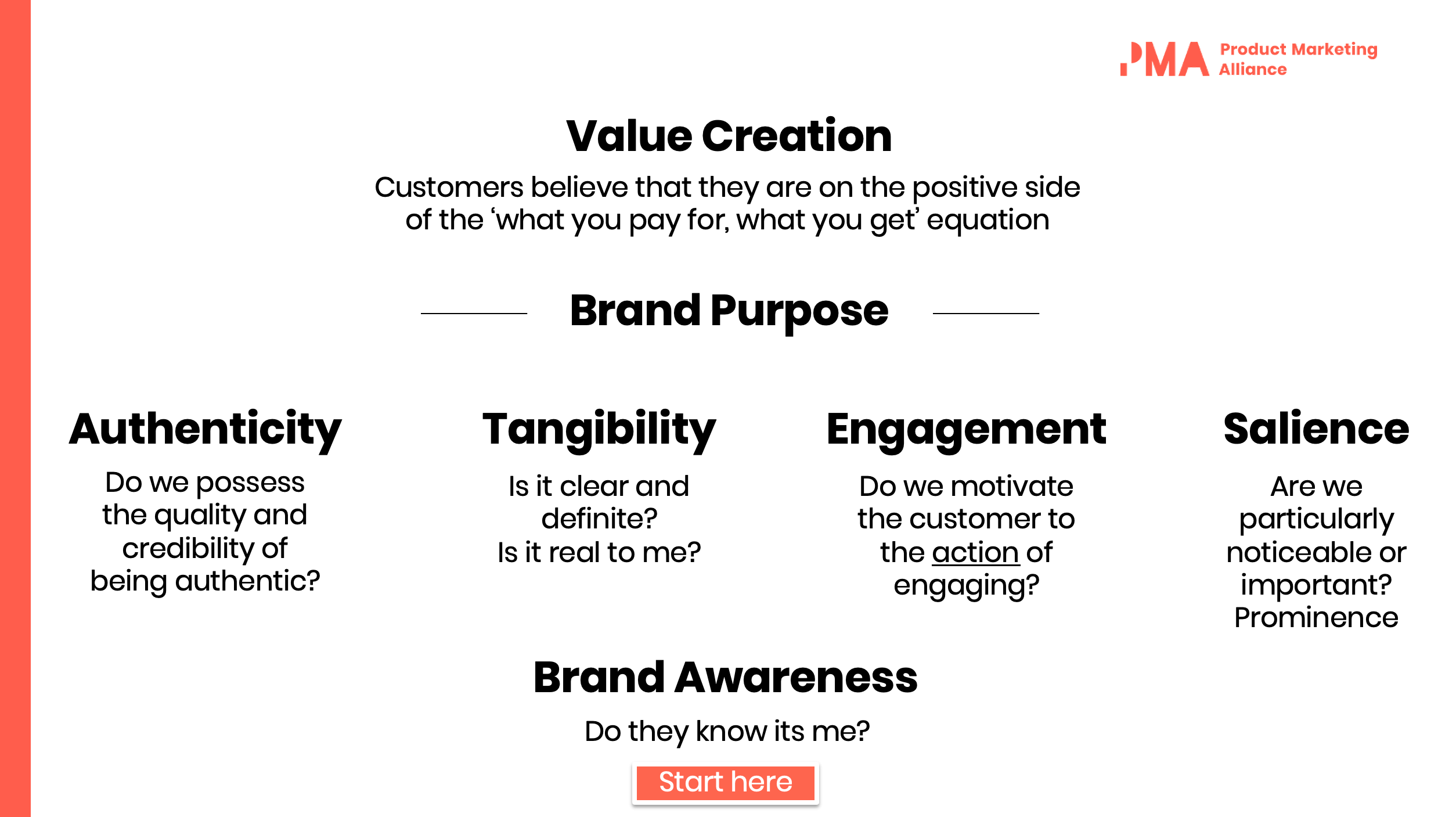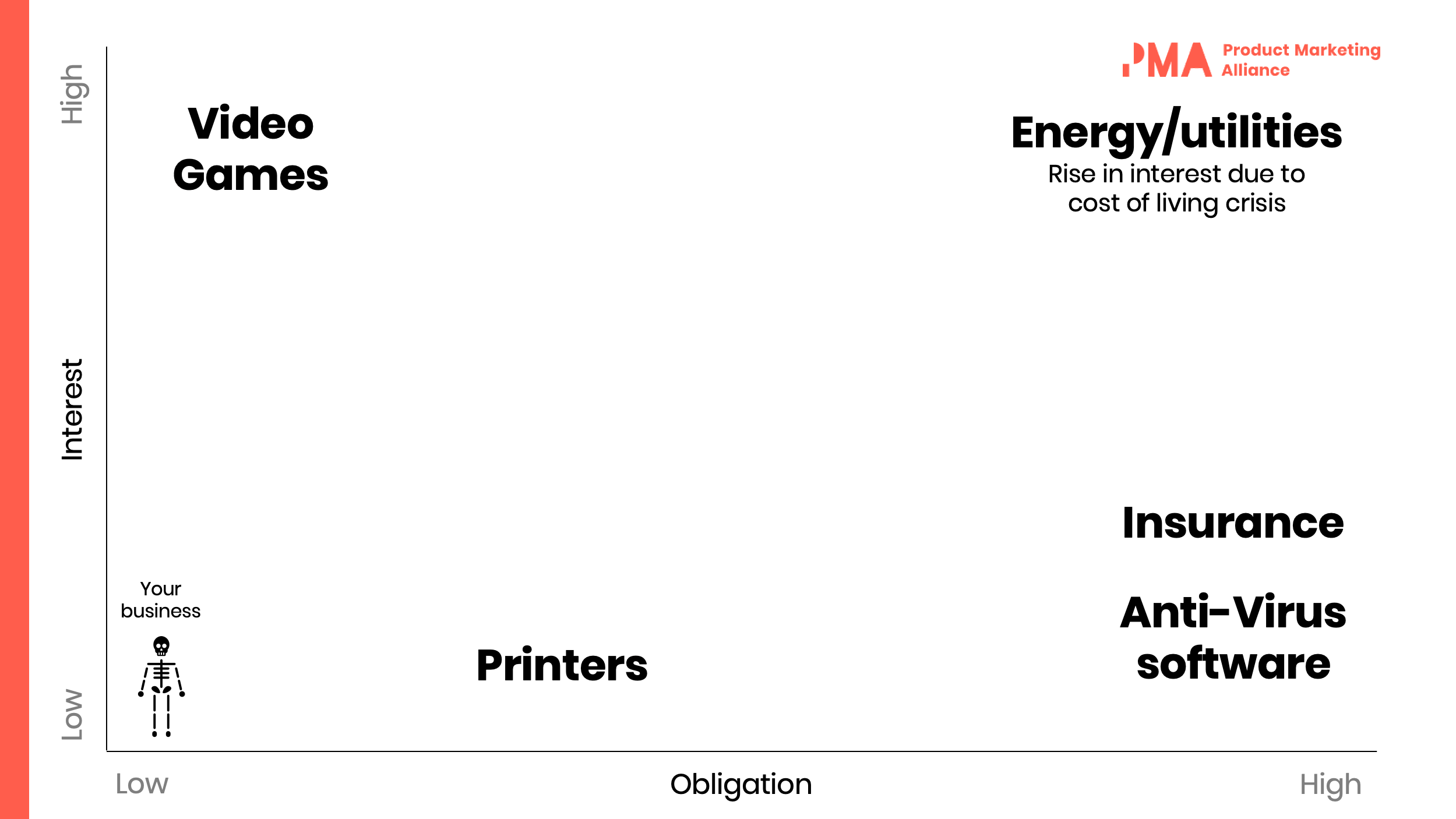Lord, I'm late to the party. The debate in broader marketing circles about the effectiveness of brand purpose has been a polarizing topic for years now.
In a 2021 study, Peter Field's analysis demonstrated, quite clearly, that the average brand purpose campaign was significantly less likely to generate robust, long-term business effects when compared with ‘traditional’ non-purpose campaigns.
So the debate around brand purpose is settled once and for all then? Hmm. Not so fast.
In a non-typical way for Field, he provided an additional but skewed view of the results, maybe to satisfy the ‘marketing politik’ or people paying for the report. However, in the end, this did little to settle the debate. Instead, it had the opposite effect by causing the discussion to rumble on and on.
It could be argued that the debate can't be won and that any research for or against merely underlines the fact that the results are open to massive variations in interpretation. However, all the discussion and available research is based on advertising effectiveness and other factors, yet not improved profits or products.
Come again? When was profit not essential? This product marketer would like to offer a different way to look at the effectiveness of brand purpose. Not through the lens of advertising but through the lens of consumer orientation.
In this article, I will challenge the status quo. I'll demonstrate that, ultimately, success depends on what you sell and how interested and engaged your consumers are. Also, that marketers all too often are drinking their own Kool-Aid.
I'll focus specifically on:
- The definition of brand purpose
- Why all roads must lead to value creation
- Why your identity and category matters
- The benefits of customer orientation
What is brand purpose?
The definition of brand purpose for Field’s analysis:
“A commitment articulated by a commercial brand or its parent company to goals other than improved profits or products, involving contribution towards one or more positive social impacts in the fields of health, the environment, human development, sustainable business practices, or other similar areas.”
Looking at this definition, I’d challenge that the goal should be completely detached from improved profit or products completely. If we’re not seeking to improve profits or products, then what is it that we’re doing? What did I miss? Answers on a postcard, please.
By the definition, I’m not sure I see the core tenants of authenticity and creating value for customers here either.
The dictionary definition of 'purpose' (noun) is ‘the reason for which something is done or created or for which something exists’.
Let’s break the component parts of the definition down:
- An action (for which something is done).
- Something has been produced (or created).
- It’s already been done (something exists).
Now, this would strongly suggest that something very tangible is happening or has happened. Yet, many purpose statements pass as pure marketing fluff at best or in reality, baseless BS.
Launching his strategy for Unilever last year, Chief Executive Alan Jope held up Hellmann’s mayonnaise as a brand with a purpose: “Fighting against food waste — that is the purpose of Hellmann’s,” he said.
Really? Is your mayo a non-governmental org (NGO)? Hardly an authentic claim nor does it create value for customers.
All roads must lead to value creation. Or it’s a road to nowhere.
Tom Roach’s analysis of brand purpose helps us ‘land’ on three broad types of brands that define themselves as having a purpose that we see in the marketing world:
1. Born Purposeful, often founder-led, often small, niche, usually founded with a societal purpose and where purpose goes across the whole business operation.
2. Corporate Converts – often larger businesses that have adopted the concept of purpose more recently. They usually seem to genuinely want to make a positive difference to the world alongside making money, sometimes to correct past wrongs or just to become a better corporate citizen.
3. Pseudo-purposeful brands – these are the ones for which purpose is just a new ad campaign claiming to try and solve an issue like gender or racial equality, or toxic masculinity, or whatever the most resonant topic is that their social listening data says is trending with their demographic that month.
It’s the pseudo-purposeful brands that seem to either dominate or ruin the reputation of marketers (or both). Therefore, positioning marketing in the eyes of consumers as a shady lie factory.
How does this lead us to value creation? Are we so woke we’ve forgotten what our job is? If anyone needs a reminder; it’s to sell things.
If we’re not creating value for customers, we’re not doing our job. Therefore, we must look through the lens of the building blocks below and be able to answer each question with honesty and humility.

Who you are and what category you belong to matters.
The level of importance you put on your brand as a marketer is in a different stratosphere compared to where your audience places its importance. To them, your brand barely registers.
Customer engagement with a brand or at product level depends on many things but we must create value for customers and be authentic with it.
If the building blocks of salience and tangibility are to play a part, and engagement means we want people to do something - even if the aim is for customers to simply think about our purpose - then we need to dig further into this area.
First, let’s look at the axis. There are two:
1. Interest – is my offering or category of interest or not?
2. Obligation – do I really need it?
When you map this with certain categories, we can see that there’s a dynamic that plays out that you could split like this:

If a consumer struggles with salience and tangibility in a low-interest category, then does it really matter what your purpose is? If you’re in a commoditized business, does purpose matter to the degree some marketers put on it?
If your customer is battling the cost of energy, does your caring for the planet and your green credentials matter as much? Remember, for them, it’s heat or eat.
Did we forget that customer orientation wins every time?
Whilst companies and marketers high-five and back-slap each other, they run the risk of inadvertently shooting themselves in the foot.
Will ‘we are here to save the world from…’ resonate with a consumer who couldn’t give a flying fig about you or the category you’re in? Lofty unobtainable missions will be seen as verbose unsubstantiated claims that can’t be delivered.
Lest we forget that public awareness of corporations misbehaving is high, the virtue of ‘fairness’ is a very strong value to Brits (I’d suggest most people). Therefore you have to ask yourself as a marketer, does my purpose campaign really hold water?
Could the perception of Facebook be any more toxic as an internet menace? (Unfortunately, probably). Do the public really ‘get’ your purpose when it’s revealed you managed to pay no tax on billions of dollars of profit? Or does the CEO helping themselves to obscene profits whilst their workforce struggles during a cost of living crisis lend itself to a higher purpose?
Credibility with weary consumers is dropping quicker than an astronaut entering the earth’s atmosphere. Therefore, is purpose really going to help you?
Back to basics.
Leave the purpose at the front door. Low interest means low engagement. Your mayonnaise does not need some lofty purpose. Mark Ritson correctly cites that bread and salad are its purposes.
In low-interest categories, I’m a keen champion of doing what matters as a product marketer. Consumers seek mental shortcuts and, yes, brand awareness factors in the many shortcuts they seek. But not a lofty unobtainable or unrealistic purpose.
There’s a case that transparent, purpose-driven decision-making forms an incredibly deep bond with the true believers, especially for companies that were Born Purposeful. But be realistic if your category really is one of them and accept that ‘purpose’ is not the only driver of value.
For most consumers, their purpose currently is to survive the cost-of-living crisis born by recent events. So, as marketers, let’s show some humility, instead of undermining the credibility of our trade by trying to pretend our brands are something they are not.
Stay safe. Look after one another.
Harvey.
Want to learn more?
At Product Marketing Alliance, we offer Master’s courses directed towards teaching you every key product marketing principle you could possibly need - and the collection is only continuing to grow.
From research to competitive intelligence, to positioning, to narrative design… you name it, we have it. And if not, we’re building it. Simply choose which course you’d like to brush up on and… voila!
Also, if you want an even better bargain, join the Mastering Product Marketing subscription and at a reduced price you’ll unlock:
- Over 15 gold-standard courses,
- More than 70 hours of learning,
- Official certification & accreditation,
- Over 50 templates & frameworks,
- Exams throughout,
- Optional coursework,
- Fireside chats with red hot guests, and
- 30+ hours of bonus footage.
